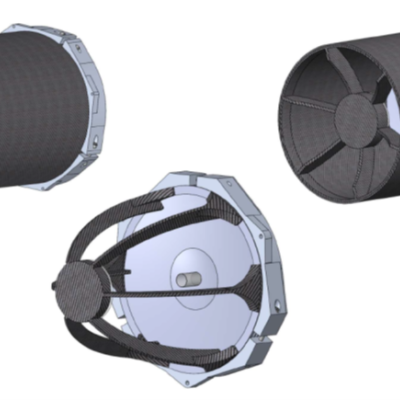The approach is to use foundational materials science, structural design, thermal analysis, optic fabrication, and space systems engineering, and to use optimize them through large-scale simulation to realize meter-scale telescopes at 10X cost reduction. LLNL’s folded Gregorian design integrates all alignment sensitive components into one static monolithic system. Like solid-…
Keywords
- Show all (240)
- Additive Manufacturing (55)
- Instrumentation (41)
- Synthesis and Processing (21)
- Sensors (14)
- Diagnostics (11)
- Imaging Systems (9)
- Photoconductive Semiconductor Switches (PCSS) (9)
- 3D Printing (8)
- Carbon Utilization (7)
- Electric Grid (7)
- Materials for Energy Products (7)
- Semiconductors (7)
- Substrate Engraved Meta-Surface (SEMS) (7)
- Therapeutics (7)
- Brain Computer Interface (BCI) (5)
- Data Science (5)
- Diode Lasers (5)
- Optical Switches (5)
- Laser Materials Processing (4)
- (-) Compact Space Telescopes (6)
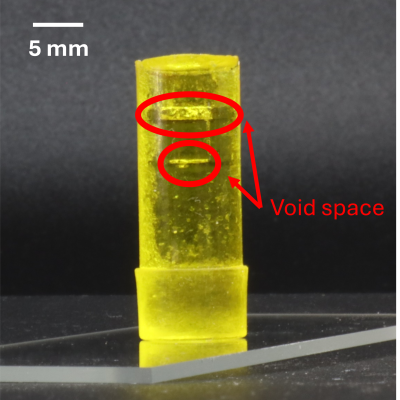
This LLNL invention is comprised of (1) a volumetric subtractive manufacturing system which can tomographically manufacture 3D structures with negative features (materials in negative space is degraded with light exposure), and (2) a hybrid volumetric additive/subtractive manufacturing system in which a gelled/solid structure is printed by resin material polymerization using one light, and…
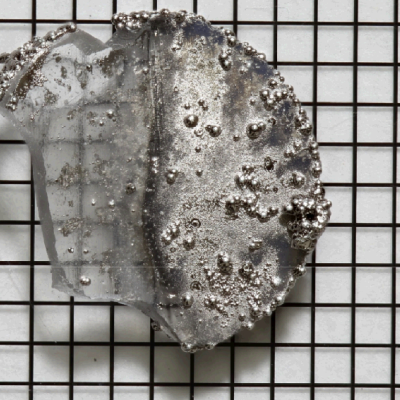
LLNL researchers have continued to develop their pioneering DIW 3D-printed glass optics technology that allows for the 3D printing of single- and multi-material optical glass compositions in complex shapes. This LLNL invention further proposes incorporating dopants (including, but not limited to TiO2 and Pd) into slurries and inks for 3D printing of glass components that can then be directly…
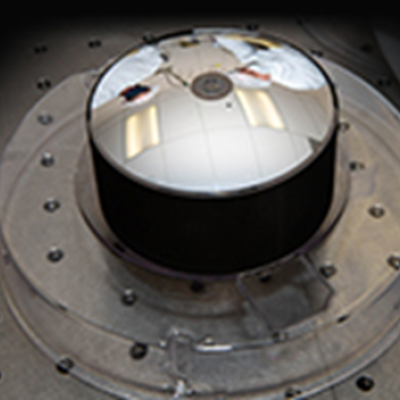
Rapid monolith development at scale is achieved through use of a functionally equivalent optic simulant made from a low-cost material to substitute the functional optic. Monolith optical performance is affected not only by thermal expansion but also by temperature inhomogeneity due to the temperature dependence of refractive index.

Aeroptics are a proposed new class of monolithic optical system in aerogel fabricated by molding around a master mandrel. This approach combines the intrinsic stability of proven monolithic telescopes, with the ultralow density of silica aerogels. In Aeroptics, the monolith is hollow with an aerogel substrate providing a supporting structure. Theoretically, Aeroptics could enable 1-m aperture…

This invention achieves both a wider field of view and faster f-number within a monolithic substrate by incorporating an aspheric convex refractive first surface and a planar aspheric field corrector surface on the final refractive surface. These two refractive surfaces work in conjunction with a concave aspheric primary and convex aspheric secondary mirror (e.g. Cassegrain type) to improve…
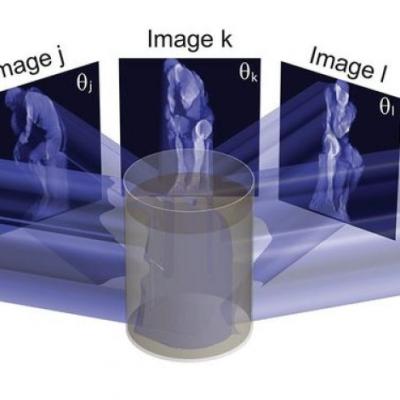
LLNL has developed a system and method that accomplishes volumetric fabrication by applying computed tomography (CT) techniques in reverse, fabricating structures by exposing a photopolymer resin volume from multiple angles, updating the light field at each angle. The necessary light fields are spatially and/or temporally multiplexed, such that their summed energy dose in a target resin volume…
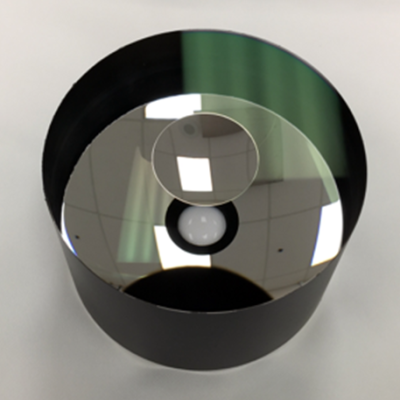
Monolithic Telescopes are a novel implementation of a solid catadioptric design form, instantiated in a monolithic block of fused silica.
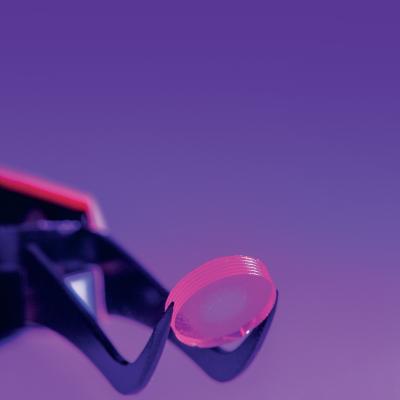
LLNL researchers have developed a custom resin formulation which uses a dispersing solvent and only a multifunctional monomer as the binding agent. The dispersing solvent system typically used has multiple components meant to achieve excellent dispersal of silica in order to create a flowable resin (rather than a paste). The dispersing agent has low vapor pressure, which allows the 3D printed…
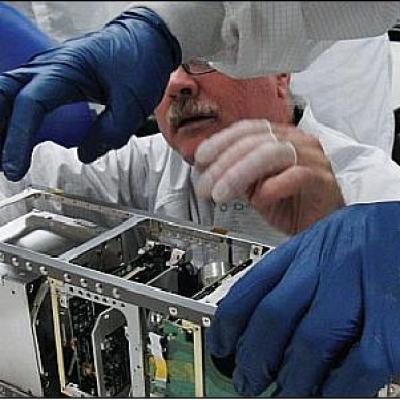
LLNL is developing the Space-based Telescopes for Actionable Refinement of Ephemeris (STARE). STARE is a constellation of low cost nano-satellites (less than 5Kg) in low-earth orbit dedicated to the observation of space debris in conjunction with a ground-based infrastructure for maintenance, coordination and data processing. Each nano-satellite in the constellation is capable of recording an…


